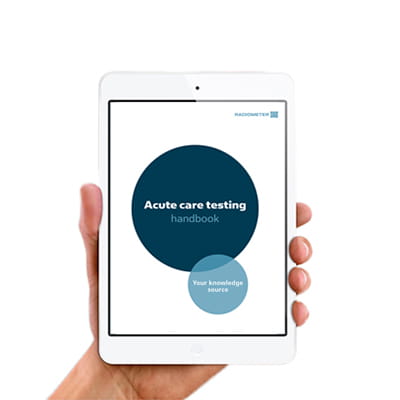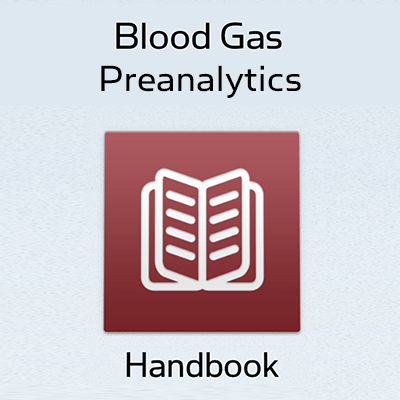Printed from acutecaretesting.org
July 2012
Acid-base disturbance in COPD
Summarized from Bruno M, Valenti M. Acid-base disorders in patients with chronic obstructive pulmonary disease: A pathophysiological review. J Bomedicine and Biotechnology (2012) Article ID 915150 8 pages ( available at : http://www.hindawi.com/journals/jbb/2012/915150/ )
Arterial blood gases are frequently useful in the clinical management of patients with chronic obstructive pulmonary disease (COPD) to assess both oxygenation and acid-base status.
A recent review article focuses on disturbance of acid-base in these patients, which occurs in advanced disease when pulmonary gas exchange is so compromised that the rate of carbon dioxide production in the tissues exceeds the rate of carbon dioxide elimination by the lungs.
The article begins with an explanation of how the resulting carbon dioxide accumulation in blood leads to respiratory acidosis, the acid-base disturbance that commonly occurs in advanced COPD. An important distinction is made between acute and chronic respiratory acidosis; compensation is less effective in the former.
Then follows a detailed description of the several renal mechanisms involved in the compensatory response to chronic respiratory acidosis. Although this mitigates the acidosis to a considerable extent, it often does not result in normalisation of pH. The deleterious effects of acidosis are enumerated and the authors also briefly review the epidemiological study that links severity of acidosis to poorer outcome among COPD patients.
The significance of renal compensatory mechanisms is highlighted again in the discussion of the co-existence of renal failure in patients with COPD who to a greater or lesser extent lack these mechanisms and thereby have worse acidosis and poorer outcome.
Many COPD patients with respiratory acidosis are suffering other conditions or prescribed drugs that affect acid-base homeostasis and these patients can present with mixed acid-base disturbance, for example: respiratory acidosis with metabolic acidosis or respiratory acidosis with metabolic alkalosis.
The authors discuss the potential causes of these ‘extra’ disturbances along with useful strategies for interpreting the arterial blood gas results in such complex cases. This is an excellent overview of a common clinical application of arterial blood gas analysis with some helpful practical tips for interpretation of blood gas results in patients with COPD.
Potentially difficult topics are dealt with in a very comprehensible way that renders the review accessible to all those with a rudimentary understanding of acid-base homeostasis.
May contain information that is not supported by performance and intended use claims of Radiometer's products. See also Legal info.
Acute care testing handbook
Get the acute care testing handbook
Your practical guide to critical parameters in acute care testing.
Download nowRelated webinar
Evolution of blood gas testing Part 1
Presented by Ellis Jacobs, PhD, Assoc. Professor of Pathology, NYU School of Medicine.
Watch the webinar








